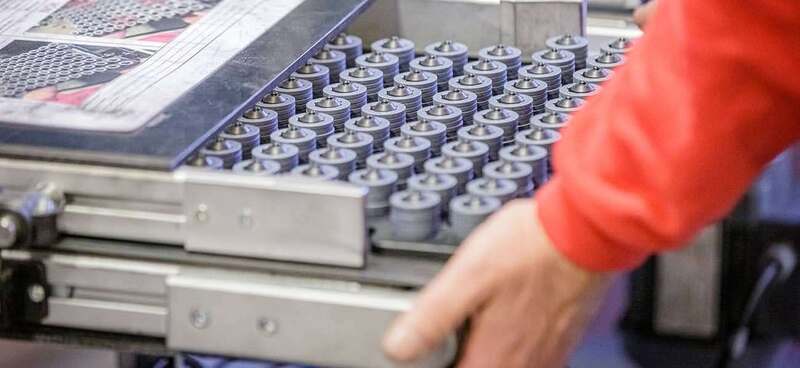
Mechanical seals are essential components in many industries, used to prevent fluid leakage between rotating parts of machinery. Although designed for high reliability and durability, they can be subject to failure over time, compromising the efficiency of the systems in which they are installed. Understanding the main causes of failure is crucial to preventing problems and ensuring safe and continuous operation.
With this article, we at Meccanotecnica Umbra will examine the factors that can lead to the deterioration of mechanical seals and look at prevention strategies.
Failures can result from a number of factors, often related to installation, misuse, or operating conditions. Let's analyze the causes in detail.
A major cause of mechanical seal failure is improper installation. If the seal is not placed accurately, imbalances or excessive pressure on components can be created, leading to premature wear or, in some cases, immediate damage. Proper installation requires precision and attention to detail, following, of course, the manufacturer's specific guidelines.
Changes in temperature, pressure, or rotational speed beyond specified limits can compromise the integrity of the mechanical seal. For example, excessive temperature rise can cause overheating and deformation, while high pressures can force materials beyond their limits, leading to failure.
Proper lubrication is essential to reduce friction between the seal contact surfaces. If there is insufficient lubrication, friction increases, accelerating the wear process and reducing seal life. The total absence of lubricant can also cause overheating and deformation.
The presence of solid particles, impurities or corrosive liquids in the working fluid can damage the surfaces of mechanical seals. These contaminants, if the mechanical seal is not designed for these uses, can scratch the contact surfaces, reducing the effectiveness of the seal and leading to significant leakage.
Mechanical seals are subject to wear over time due to operating conditions and constant friction. Although wear is inevitable, excessive wear can impair seal performance, leading to fluid leakage and a decrease in overall system efficiency.
Selecting the wrong material for a specific application can cause premature failure of mechanical seals. For example, the use of materials that are not resistant to aggressive chemicals or high temperatures can result in rapid degradation of components.
Vibration and shaft or pump misalignment can create excessive stress on mechanical seals. This can cause component damage or uneven wear, reducing seal life and increasing the risk of failure.
Rapid and sudden changes in temperature can cause seal components to rupture or deform. This phenomenon, known as thermal shock, drastically reduces the seal's ability to maintain its effectiveness, often leading to leakage or damage.
A mechanical seal incorrectly sized for the specific application may not be able to handle the operating conditions. Improper sizing can cause mechanical overload, leading to premature failure.
Preventing mechanical seal failures requires a methodical approach that starts with careful design and selection of the most suitable materials for the specific operating conditions. Using materials that are resistant to wear, corrosion, and thermal and mechanical stress is essential to ensure long seal life and reliability, especially in demanding industrial applications.

Another crucial aspect of failure prevention is the implementation of rigorous quality controls throughout the production process. Functional tests and realistic simulations of operating conditions allow the ability of seals to withstand mechanical and thermal stresses to be verified, identifying any problems before products are released to the market. Dimensional inspection and visual inspections are key tools to ensure that each component meets the expected standards.
Proper installation and maintenance of mechanical seals also plays a crucial role in preventing failures. Providing specific training and technical assistance to customers ensures that seals are installed correctly, avoiding common mistakes that could compromise long-term performance.
In addition, continuous innovation and the development of new technologies and advanced materials make it possible to constantly improve the quality of mechanical seals, ensuring ever-higher performance. By taking a customized approach, understanding the specific needs of each application, tailor-made solutions can be offered that increase the reliability of seals, reducing the risk of failure under harsh operating conditions.
In this context, we at Meccanotecnica Umbra adopt all these strategies to prevent failures of the mechanical seals we manufacture, combining advanced design with customer collaboration, the use of the highest quality materials and rigorous quality controls throughout the production process. We are distinguished by our unwavering commitment to offering technical assistance to customers, supporting them during installation and maintenance, and our continuous quest for innovation. Our goal is to provide reliable and durable solutions that meet the needs of a wide range of industrial applications, ensuring excellent performance over time.
The prevention of mechanical seal failures is a key element in ensuring the operational continuity and safety of industrial systems. By adopting advanced design techniques, high-quality materials and rigorous quality controls, we at Meccanotecnica Umbra position ourselves as a reliable partner for industries that require high-performance and durable solutions.
If you would like to learn more about our products or would like advice tailored to your needs, contact our team of experts today.
© 2025 - Meccanotecnica Umbra S.p.A.
Designed by Co.Mo.Do Comunicare Moltiplica Doveri
Developed by NUR Digital Marketing